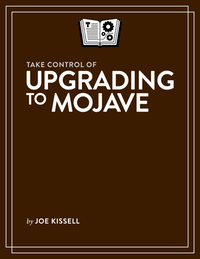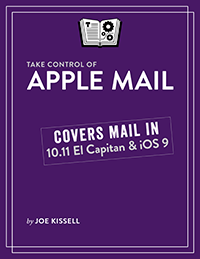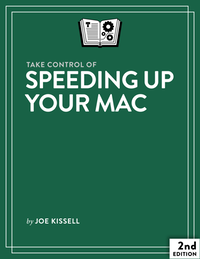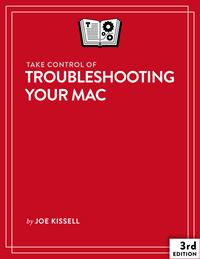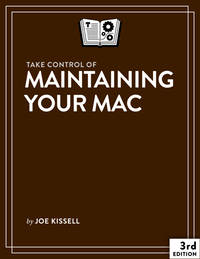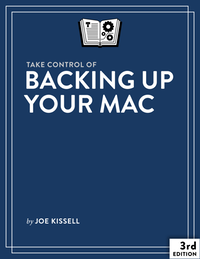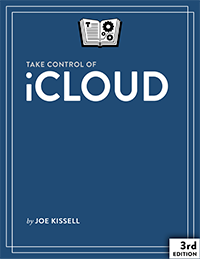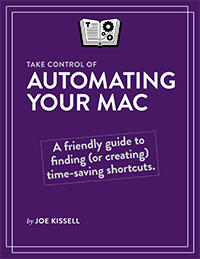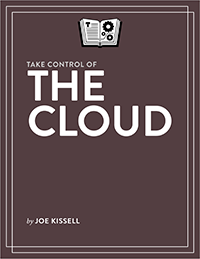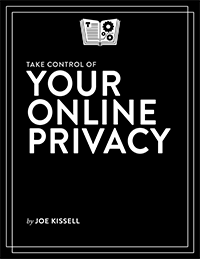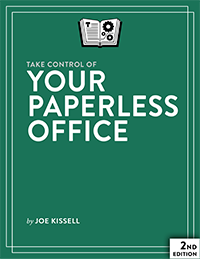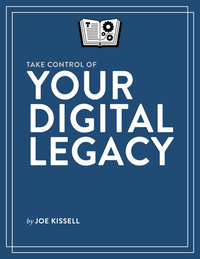The Apple Bias
From time to time I like to get away from my home office, so I take my laptop and hang out at one of the local coffee shops. As I look around the room, I automatically notice the ratio of Apple logos (on laptops, iPads, and iPhones) to Other. In this neighborhood, the ratio tends to be about 3:1 in favor of Apple products, and of course I’m in the majority. My device has The Right Logo.
It’s true: I make judgments about people based on the platform they use. And then I make judgments about myself for doing so.
I’d be the first person to insist that one’s chosen operating system, religion, political party, gender identity, or martini recipe is up to that person alone, and that no one else has any business saying otherwise. In many of my recent books, I’ve gone out of my way to be platform-neutral, and (I hope) equally helpful to everyone, regardless of which device they’ve bought.
But deep down inside, I don’t truly believe all brands are equally good. I’ll buy whatever TV, printer, or car seems best at the time given my research, but if you see me carrying around a PC laptop or Android phone, you’ll know that a transporter malfunction has caused me to switch places with Evil Joe from a parallel, mirror-image universe. I just can’t picture it happening. You can use whatever brand you want, but I’ll stick with Apple products, thanks very much.
Let’s see if I can think my way through this seemingly irrational preference.
Rationalizing My Decision
First of all, I’ve never considered myself an Apple apologist or fanboy. (In fact, I think the very word “fanboy” is dismissive and unbecoming.) Apple has released some truly awful products (including lousy software updates and unreliable cloud services). The company has made some boneheaded business decisions I couldn’t disagree with more. When a new product appears, I’m more likely to say “meh” than buy one, and I can’t even imagine waiting in line outside an Apple Store to be among the first to get the latest toy.
And yet, my computers run OS X and my mobile devices run iOS; anything else is unthinkable. As surely as I wouldn’t align myself with the “wrong” political party or the “wrong” religious viewpoint, I wouldn’t buy an Acer laptop or a Samsung phone.
Sure, there are practical considerations, including the investment I’ve made in software for Apple devices. There are the habits I’ve formed over many years that would have to change if I switched platforms. And there’s the much-discussed metric of Total Cost of Ownership, which suggests that when you factor in a device’s longevity, the cost of maintenance and software, and so on, Apple devices tend to be a better value even if they’re more expensive up front.
I could say that my computer can run OS X, Windows, and Linux (all of which I use from time to time), while PCs can’t run OS X—so I have the most flexibility. I could point out that my phone is much less likely than an Android phone to be infected with malware. I could say that because my colleagues use Apple products, it’s most convenient if I do too.
All these things are sort of true, but they still don’t explain why I stick with Apple. I freely admit that if I were stranded on a desert island with a Linux computer and a Windows Phone (and somehow, miraculously, electricity and a network connection) I’d find ways to be just as productive as I am now. But then, I could also subsist entirely on coconuts and wild boar if I had to. Given the choice, I’d rather not.
We All Have Our Reasons
For some people, the Apple logo and the trademark white earbuds are status symbols. They say: I’m one of the cool kids. (And also: I have some money.) For others, it’s a utilitarian choice—I use this because I depend on software that runs only on this platform. Still other people simply chose the tool that was best for them based on whatever criteria seemed important at the time—and might make a different choice next time.
Then there are people with irritatingly inconsistent attitudes. Like me. Here I am saying that one should always dispassionately choose the right tool for the job, while turning right around and declaring that my tool will always be made by the fruit company. I acknowledge the apparent contradiction.
My Apple bias doesn’t amount to blind faith in a corporation or fanatical devotion to a brand. What it comes down to for me is simplicity. For all their flaws (and there are many), OS X and iOS require less thought and fewer steps to do the things I personally need to do most frequently. On the whole, they require less fiddling, nudging, and head-scratching than other operating systems, at least for someone of my disposition. And on the whole, I’ve found Apple hardware to be reliable and capably supported.
The Apple Calculus
To be sure, Microsoft is righting wrongs and rapidly advancing in a refreshingly human-friendly direction (on all its platforms). I notice and respect that. Google is…well, sometimes not entirely evil. There are some very spiffy laptops, smartphones, and tablets out there from a wide variety of manufacturers that do useful things Apple’s products don’t.
But for every problem some other brand’s device might solve, I have to consider whether it will also create a new one (or un-solve a problem I addressed long ago with my Apple gear). Will my net balance of solved problems go up or down? And, if up, will it be far enough and fast enough to justify the cost in time and money? Is it even worth the effort to keep doing that mental calculation?
In keeping with my regular refrain of “Life is too short,” I expect to maintain my Apple bias until the facts compel me to change. Some of the stuff I write here will be just for Apple users, because that’s what I know best, and I hope those who don’t use Apple gear will let that slide.
I want you to know that if you use another operating system, you can still be my friend. I’ll still tell you useful and interesting things on this site that will help you with technology, and I’ll respect your decisions without trying to convert you. I may be a tiny bit sad or disappointed, because I’d always prefer that people agreed with me—but that’s my problem, not yours. Apple bias or not, what’s most important to me is that you’re happy. Your path to happiness may be different from mine, and I hope we can support each other’s journeys.



